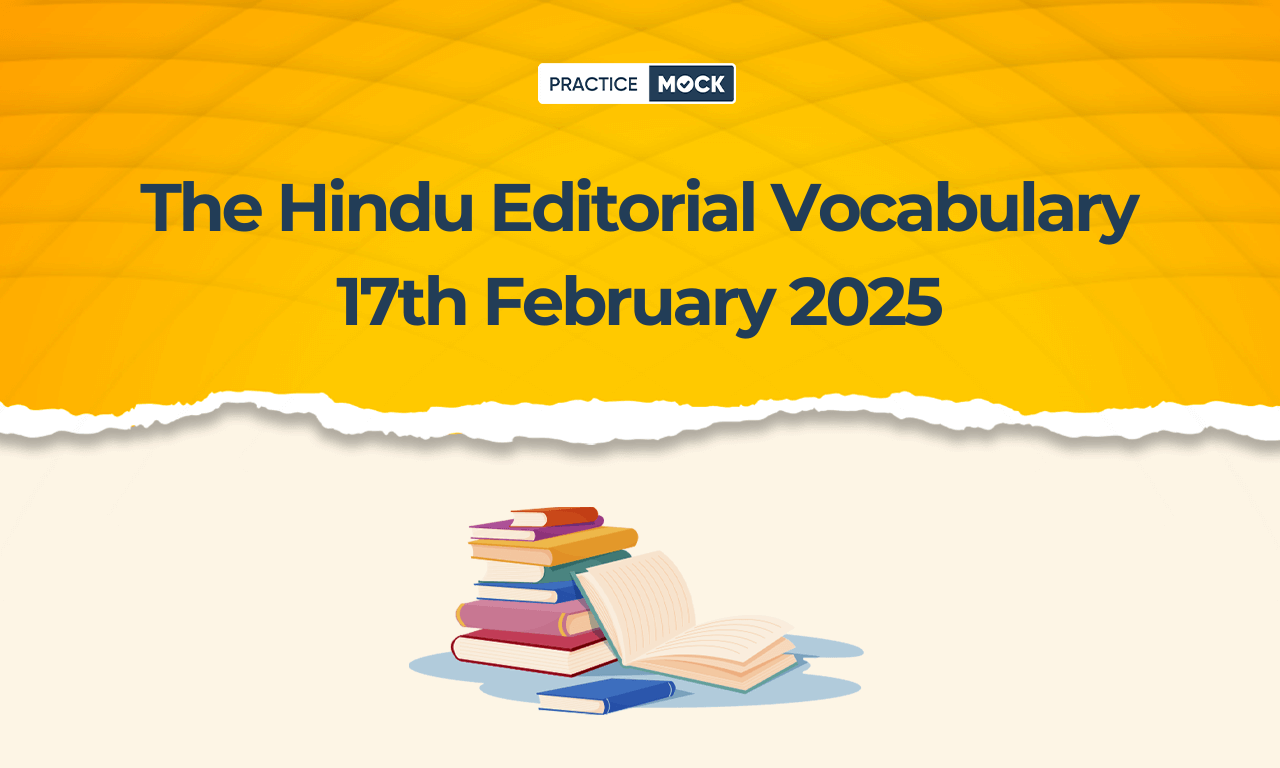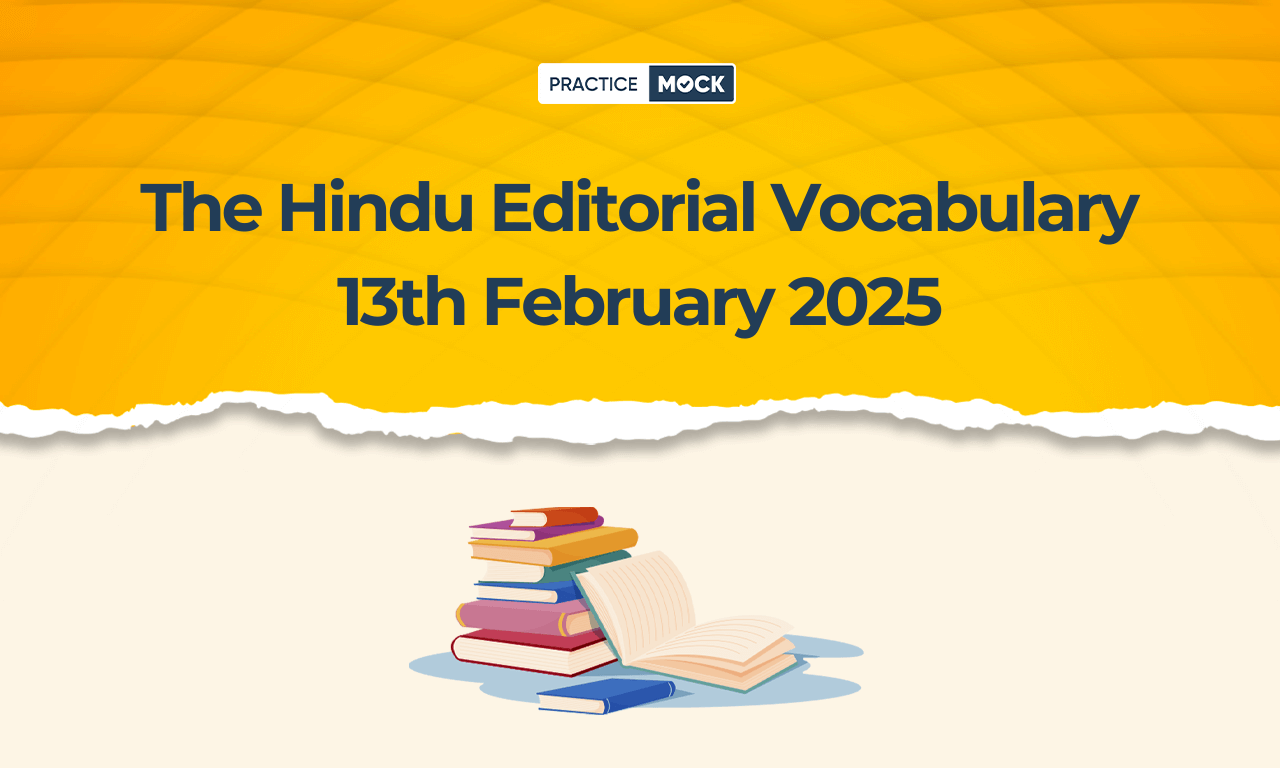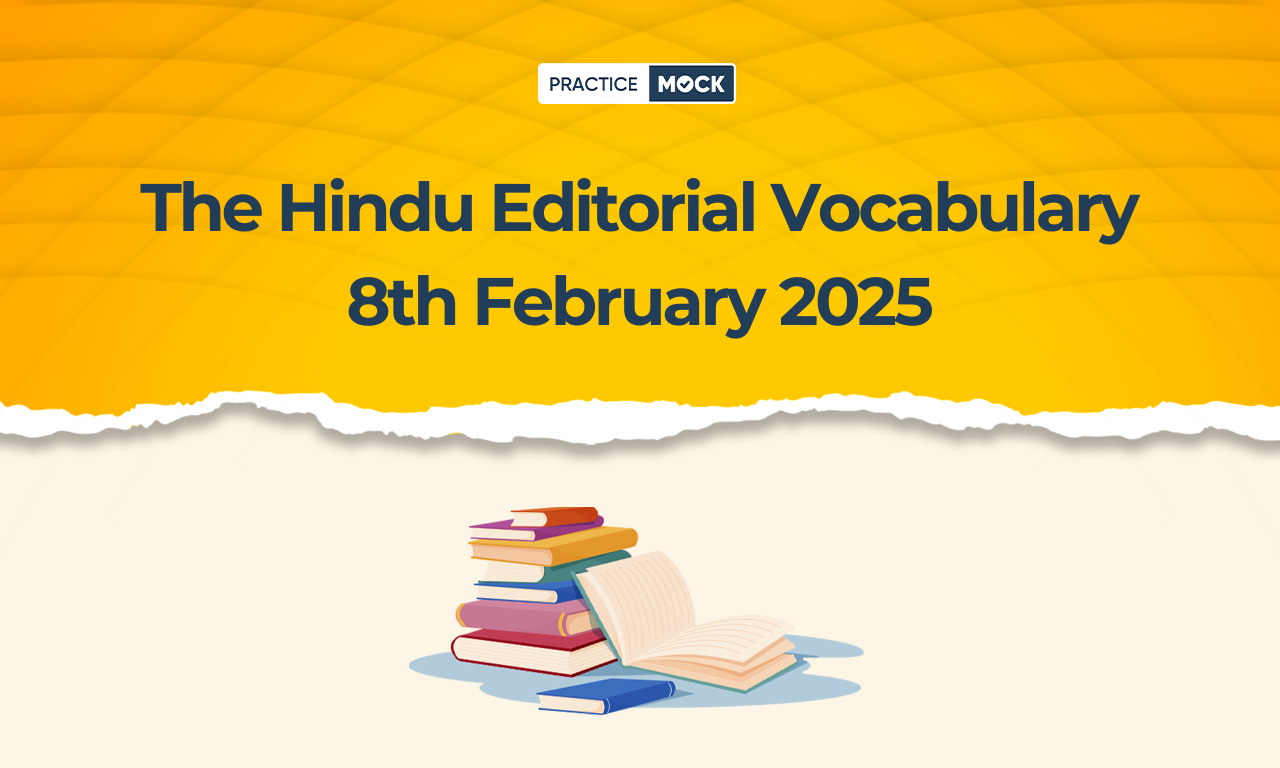

| Difficult Word/ Phrase | Contextual Sense |
| Collegium system | a system under which appointments and transfers of judges are decided by a forum of the Chief Justice of India and the four senior-most judges of the Supreme Court |
| Opaque | Hard or impossible to understand |
| Arbitrary | Having any value or form, of any degree or extent |
| To the fore | to or into the front |
| Conspicuously | In a manner tending to attract attention |
| Materialise | Come into being; become reality |
| Impending | Close in time; about to occur |
| Bode ill | to show or suggest that future developments or events will be unfavorable or unwelcome |
| Heed | Pay close attention to; give heed to |
| Clique | An exclusive circle of people with a common purpose |
| Dispel | Force to go away |
| Invariably | Without variation or change, in every case |
| Puisne | younger or inferior in rank; junior; associate |
| Seldom | Not often |
| Set off | Put in motion, initiate (a device, reaction, circuit, etc) |
| Discomfiture | Anxious embarrassment |
| Punitive | Inflicting punishment |
Transfers unexplained: On the transfer of High Court judges
The common criticism that the functioning of the Collegium system (a system under which appointments and transfers of judges are decided by a forum of the Chief Justice of India and the four senior-most judges of the Supreme Court) of judicial appointments is opaque (Hard or impossible to understand), and sometimes arbitrary (Having any value or form, of any degree or extent), seems to hold greater validity in the matter of transfers of judges from one High Court to another. A recent round of transfers — among the dozens that have been effected in the last few years — has brought the controversial issue to the fore (to or into the front) again. The list included three judges from the Telangana High Court, and two each from the Madras and Andhra Pradesh High Courts. Conspicuously (In a manner tending to attract attention) absent was the name of Justice Nikhil S. Kariel, a Gujarat High Court judge whose proposed transfer was strongly opposed by the bar in that State. Lawyers took up the issue in support of Justice Kariel, as well as Justice A. Abhishek Reddy of the Telangana High Court, and the Chief Justice of India met with representatives of the Bar from both States. Yet, the transfer of Justice Kariel alone did not materialise (Come into being; become reality), while the transfers of other judges were notified. If reports that the Gujarat High Court Chief Justice was unaware of the impending (Close in time; about to occur) transfer of Justice Kariel are correct, it bodes ill (to show or suggest that future developments or events will be unfavorable or unwelcome) for the legitimacy of transfer proposals. No good message is being sent if it is perceived that the Collegium heeds (Pay close attention to; give heed to) the demand made by one set of lawyers, but ignores that of another group.
Transfer of judges may be needed for exchange of talent across the country and to prevent the emergence of local cliques (An exclusive circle of people with a common purpose) in the judiciary. However, the power of transfer has always been seen as a possible threat to judicial independence. Even under the Collegium system, it seems it is difficult to dispel (Force to go away) the impression that the threat of transfer hangs over every judge’s head. The Memorandum of Procedure is clear that a judge’s consent is not necessary to effect a transfer. The current norm is that all transfers ought to be in public interest, that is, for better administration of justice throughout the country. It also says the personal factors of the judge, including his preference of places, should invariably (Without variation or change, in every case) be taken into account. No one knows if these requirements are fulfilled in each case. Why a puisne (younger or inferior in rank; junior; associate) judge should be shifted to another State without being made a Chief Justice is seldom (not often) explained. Usually, it sets off (Put in motion, initiate (a device, reaction, circuit, etc)) speculation that the reasons are either allegations against the judge or the discomfiture (Anxious embarrassment) that his judicial orders are causing to the government. Disclosure of the actual reason may not always be possible. However, it hardly needs to be stressed that transfer cannot be used as a punitive (Inflicting punishment\) step. The time may have come for a complete review of the provisions for transfer of High Court judges.
Want to improve your vocabulary further? Download the Lists of Word-Meanings of Previous Months here.
Recent Posts
IBPS Clerk Final Cut Off 2025, Check Mains Category Wise Marks
IBPS Clerk Final Cut Off 2025 will be released by the IBPS. Check the blog…
IBPS PO Final Cut Off 2025, Check Category Wise and Section Wise Marks
The IBPS PO Final Cut Off 2025 will be released on their official website. Candidates…
What Type of Questions Are Asked in RBI Grade B?
Find out what types of questions are asked in RBI Grade B and enhance your…
SSC CGL Quant Mock Test Free Based On Previous Year Question Papers
In this blog, we have provided the SSC CGL Quant Mock Test Based On Previous…
IBPS SO Final Cut Off 2025, Check IT Officer Final Cutoff Marks released On 1st April
The IBPS SO Final Cut off 2025 will be released on their official website. Candidates…
SSC CGL 2025 Notification, Check Exam Date (Expected)
The SSC will release the SSC CGL 2025 Notification on 22nd April on its official…


